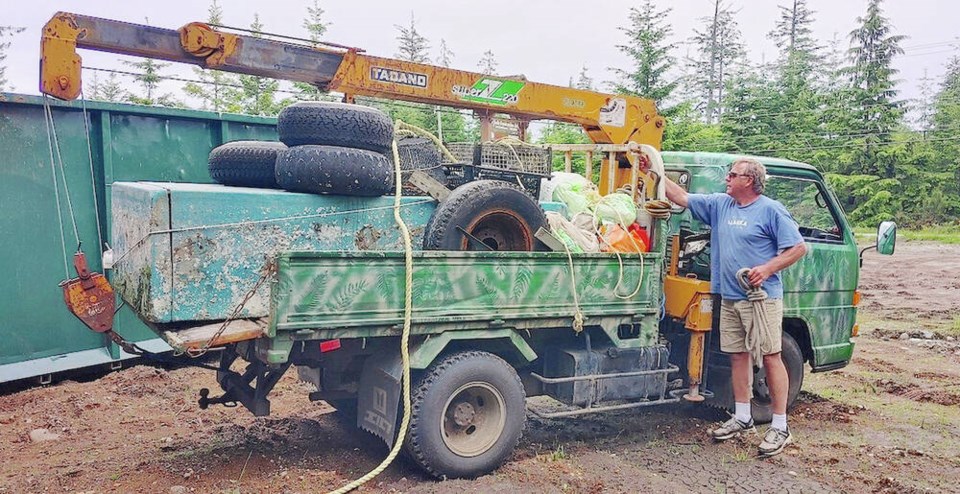Coastal community cleanup groups on eastern Vancouver Island have been itching for the opening of B.C.’s newest ocean debris recycling depot.
The Cumberland site, operated by Comox Strathcona Waste Management (CSWM) in partnership with the Ocean Legacy Foundation, opened in mid-June to tackle the tonnes of plastic washing ashore in the region, said Stephanie Valdal, CSWM’s waste management services co-ordinator.
The site collects materials from shoreline cleanup efforts and legacy equipment from commercial fishing and the aquaculture industry, providing essential infrastructure to divert plastics from the landfill and reduce oceanic pollution, she said.
A volunteer community cleanup group on Quadra Island, the Beach Clean Dream Team, christened the depot by collecting enough marine debris to fill a 40-yard shipping container, Valdal said. “There are lots of people who have been waiting specifically for the depot to open so they can bring stuff in so it won’t end up in the landfill,” she said.
The site will collect lost or discarded fishing and aquaculture gear (such as netting, ropes and shellfish trays) and marine debris including plastic buoys and chunks of polystyrene.
The Cumberland depot is the third on the B.C. coast, said Chloé Dubois, executive director of the Ocean Legacy Foundation, with two others in Powell River and Ucluelet. The depots are located to handle the hot spots of plastic pollution on the west coast, she said. Two more collection sites are in the works.
The debris collected at the depots is sent to Ocean Legacy’s processing centre in Richmond, where it will be further sorted, cleaned and recycled, Dubois said. “Last year, we diverted about 500 tonnes from the landfill,” she said, adding Ocean Legacy is also collecting marine debris gathered in Alaska and Washington because the infrastructure to deal with ocean plastics is in the early stages.
“We’re one of the largest, industrial-scale projects collecting these certain types of materials,” she said.
The first and best way to divert ocean plastics is to reuse the items, Dubois said.
Industry equipment that’s in good condition and reusable, such as hard plastic shellfish trays, is offered to industry partners such as the B.C. Shellfish Growers Association.
“Our waste hierarchy prioritizes reuse because that takes up the least amount of carbon,” she said. “Then it goes to processing and recycling.”
Once the marine debris arrives at the Lower Mainland facility, the foundation further sorts it and offers items it doesn’t process, such as beverage containers, to recycling partners.
Ocean Legacy is at the forefront of processing ocean plastics into pellets that can be transformed into durable, useful products such as kayaks or kayak paddles.
“We’ve developed a lot of our own technologies,” Dubois said, noting Ocean Legacy is currently processing polypropylene and high- and low-density polyethylene and will expand into processing nylon next year.



